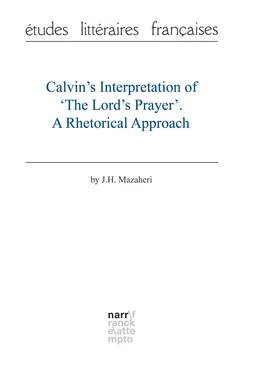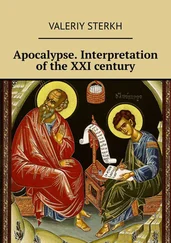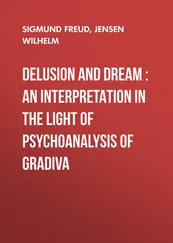It is only through Jesus-Christ that we can feel the Father and understand his goodness. He is caring, close to us, and infinitely better than an earthly father. Calvin concludes his exegesis of the address to God in The Lord’s Prayer by referring to Paul, who, in his letter to the Philippians , tells them that they should be confident and trust God before requesting anything from Him in their prayer: “Ne soyez en souci de rien, le Seigneur est prochain” [Phil. 4, 6 (Calvin 384)].3 The last word is Christ, who is so close to us. Augustine’s conclusion does not mention Christ but stresses the idea that the “Father in heaven” means that He dwells in the righteous’s soul. So before asking anything from God, writes the Church Father, “he who prays wishes Him whom he invokes to dwell in himself also; and when he strives after this, practises righetousness,—a kind of service by which God is attracted to dwell in the soul” (Augustine 40).4 In sum, the conception of Christ constitutes the main divergence between the two theologians in their exegesis of the address to God in the Lord’s Prayer . Here, I could say, Calvin’s christology seems to be closer to that of the Gospels, especially the one according to John.
II. The first petition: “Hallowed by Thy name”
The First Petition of the Lord’s Prayer ( Institution chrétienne III, 20) is, in Calvin’s French, “Ton Nom soit sanctifié.” He calls it “La première requeste ” in the last edition of his work (1560), but in the 1541–1545 editions he uses the term “petition” instead. He begins his exegesis of this First Petition by implicitly reminding the reader of the evil that is rooted in man, i.e. the original sin. However, the reader might first expect, by way of introduction, a definition of the term “sanctifié” (“hallowed”). What is, indeed, “sanctification” in his view? But the theologian assumes that the reader’s understanding of this term is the same as his. At any rate, we know that “sanctifier” comes from Latin sanctificare , from sanctus (“saint”) and facere (“faire”). Furthermore, the word “saint” is the participle of sancire (in French “consacrer”), which comes from sancus . The origin of the latter is the Sanscrit word sac , which one finds in the Rigveda , meaning “to adore” or “to worship”. Though Calvin does not define the term “sanctifié”, he from the start stresses man’s evil spirit:
La première requeste est: Que le Nom de Dieu soit sanctifié, la nécessité de laquelle nous doit bien faire grand’honte . Car que sauroit-on penser plus vilain que de voir la gloire de Dieu estre obscurcie, partie par nostre ingratitude , partie par nostre malice ? qui pis est, que par nostre orgueil et furies desbordées elle soit abolie, entant qu’en nous est? (III, 20, 41)1
The evil in man, that is in everybody without exception, including Calvin himself, who rightly emphasizes the possessive “nostre” (our), this evil spirit is stressed by the enumeration of negative qualities: “vilain”, “ingratitude”, “malice”, “orgueil”, and “furies”. Thus opposing God’s will, we all somehow “obscure” His “glory”. What is noteworthy is that this paragraph on the First Petition has been entirely rewritten for the last edition of the Institutes . It would then be interesting to compare it with the previous versions (1541–1557 editions) and try to find out the reason for the revision. We will at least be able to grasp the evolution which has taken place in the theologian’s thought. The paragraph on the First Petition in the 1541–1557 editions begins as follows:
Le Nom de Dieu est icy mis comme il est renommé entre les hommes. Or comme ainsi soit que son Nom doibt estre correspondant à ses œuvres, nous entendrons par iceluy la renommée que méritent toutes ses vertuz , comme en sa puissance , sa sapience , sa iustice , sa miséricorde , sa vérité . Car voilà comment Dieu à bon droit est grand et admirable , d’autant qu’il est iuste , sage , miséricordieux , puissant et véritable . Nous requérons donc ceste maiesté de Dieu reluisante en toutes ses vertus estre sanctifiée.2
We immediately notice a radical change in the tone and the way the Reformer presents the petition. In the earlier editions, instead of the evil in man, he emphasizes God’s glory; instead of a series of negative terms, making us ashamed of ourselves, he uses words that are God’s attributes, because he wants for us to feel good about our magnificent world: “puissance” (power), “sapience” (wisdom), “iustice” (justice), “miséricorde” (mercy), “vérité” (truth). Furthermore, after this enumeration, he stresses even more the positive feeling by listing the adjectives that go with those nouns, such as “just”, “wise”, etc. The sole purpose of redundancy is to incite the readers to get closer to God and also feel better about themselves. In spite of this important difference, the main theme in both beginnings (the 1560 vs the previous editions) is God’s glory. On the other hand, we note, speaking of the latter, that the theologian uses the phrase “la gloire de Dieu” in 1560, whereas in the previous versions he wrote “maiesté de Dieu”. This may be a minor point, but let us now closely examine the differences between these editions in the description of the parallel God/man, which is present in every edition.
I. The 1541–1557 editions
Nous requérons donc ceste maiesté de Dieu reluisante en toutes ses vertus estre sanctifiée. Et estre sanctifiée non pas dedens Dieu mesme, lequel en soy ne peut avoir aucune augmentation ne diminution, mais à ce qu’elle soit estimée saincte, c’est à dire vrayement recongneue telle qu’elle est, et magnifiée comme elle appartient.1
Calvin is implicitly saying that God’s majesty is not recognized by people in general. So we pray that we might see that and love the heavenly Father. And firstly, “que son Nom soit selon ses œuvres, tellement que nulle œuvre de laquelle sa grandeur mérite d’estre exaltée, ne soit cachée ou obscurcie par ingratitude ou mescongnoissance des hommes”2 It is then through His Works that one may realize God’s greatness. Now some people intentionally hide the Father’s works, and others “obscure” them by ignorance. Therefore we pray for these people to convert, and we also pray for others not to be influenced by the evil doers or by the ignorant. In sum we pray to have faith in God, we pray for deserving His Grace.
Calvin focuses on God’s conspicuous works, insofar as they are concrete things anyone can see and feel, things whose beauty and magnificence are truly uplifting:
Davantage que quelque chose qu’on voye qu’il face, toutes ses œuvres apparoissent glorieuses, comme vrayement elles le sont, à fin que la sentence du Prophète soit pleinement accomplie, où il est dict: Seigneur, selon que tu es renommé, ta louënge est manifestée par toute la terre.3
The theologian refers to Psalm 48, which celebrates the beauty of Mount Zion, but the latter place is not mentioned in his text, because he sees it as a symbol. In fact, he praises the whole earth, even the whole universe, for his conception is that of a universal and not of a national religion. What matters most, anyway, is the fact that both the author of Psalm 48 and Calvin admire the beauty of our natural world, emphasize the concrete visible things surrounding us, and see God through it.4 The verse that has particularly inspired the Reformer is the one he quotes: “Your name, O God, like your praise, reaches to the ends of the earth” (Psalm 48:10).5
Читать дальше












